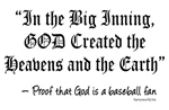Lets start with the "star" player. The team that has such player usually wants to restock their farm system with top players from another organization. Sounds logical. But, the team with the player will have no regards to the player's contract situation, whether they become a free agent soon and how much money the player is being paid. The organization could care less, they just want the best prospects an organization has. They want to land players that will be cornerstones of the organization for years to come and, quite frankly, don't care how the star player performs in his new home.
The team acquiring the "star" player now wants to get him for a bargain. All of the sudden, each team has a list, sometimes of 10 or more prospects, of players that are not tradable. These teams want to trade young players from their own list of what they don't want. Its like they have decided to disregard what they are getting in an effort to steal the player from the other organization.
What has ruined the game in regards to trading players is the teams that "have to" trade players to reduce payroll. They try to get the top prospects but then become desperate when they don't get what they want. They choose to settle for what ever the other team doesn't want, making the other team look good in the process. Johan Santana was to be traded from Minnesota. They couldn't get what they wanted so they settled for the Mets package of Carlos Gomez, Phillip Humber, Kevin Mulvey and Deolis Guerra.
Randy Johnson could be used as an example the difference between a fair trade and one of which is not fair. July 31, 1998, the Mariners traded Johnson to the Houston Astros for RHP Freddy Garcia, 2B Carlos Guillen and LHP John Halama. Nobody cared that Johnson was a free agent after the season. The Astros got one of the games best pitchers for a pennant run and the Mariners got some very good young players, at the time, the best players in the Astros farm system. That's the purpose of a trade, to help BOTH teams. The Arizona Diamondbacks decided they had to trade Johnson prior to the 2005 season. Similar to what later happened to Minnesota with Santana, they couldn't get what they wanted. Instead of holding on to the player, which wouldn't hurt if they did, they felt the need to trade him for what the Yankees wanted to give up for him. That turned out to be LHP Brad Halsey, C Dioner Navarro, and RHP Javier Vazquez, exactly what the Yankees knew they could do without. The Yankees got a top of the rotation pitcher and the Diamondbacks got very little in return because they were "desperate" to trade Johnson.
Vazquez comes up again when the Yankees are interested in trading for him after he has a solid season for the Atlanta Braves. The Braves inquire about some top prospects and the Yankees say they are off limits. The Braves feel they have to trade Vazquez and settle for what the Yankees are willing to give up. And its not much, Melky Cabrera, Michael Dunn and Arodys Vizcaino.
It is understood that some deals don't work out. Some stars fade once they are traded. (Roberto Alomar) Some prospects never live up to the hype. (Alex Ochoa) No matter what, stuff like that will happen. But the game is being destroyed by small market teams trading their best players for whatever the other team is willing to give them. And both type of teams are to blame. The small market team for refusing to hold on to their player if they can't get the right deal. The big market team for taking advantage of the situation. Maybe if both of these things would stop, we could go back to the day and age when a trade used to help both teams.

 RSS Feed
RSS Feed
